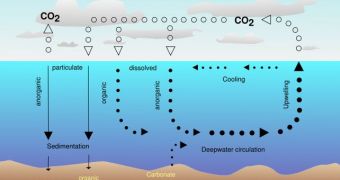In their quest for more usable land, authorities in the European Union have implemented a disastrous agricultural policy. At this point, virtually no important carbon sinks remain on the Old Continent, which means that there is nothing to counteract the buildup of carbon dioxide and other greenhouse gases in the atmosphere. The conclusions were drawn from a new scientific study, which sought to calculate the continent's GHG balance. It was also discovered that increased methane and nitrous oxide emissions tipped the natural balance and rendered all of the European forests useless, AlphaGalileo informs.
The new finds come at the right time. Next week, as the 2009 UN Climate Summit starts in Copenhagen, the sink that Europe is believed to be will be heavily negotiated by many countries. The research shows that there is nothing to argue about, and that the continent is neither a strong source, or a strong sink. These conclusions contradict previous research, which showed the soil to be a potent absorbent for important amounts of dangerous gases. The new work was compiled by experts from 17 European countries, all of which are cooperating in the EU-Integrated Project CarboEurope. The main goal of the initiative is to compile the first comprehensive greenhouse-gas balance for Europe.
The research has also revealed that all European forests are only capable of capturing and storing no more than 125 million tonnes of carbon per year, which is nothing compared with the billions of tonnes that are emitted worldwide. Analysts say that this sink could trap about ten percent of the total greenhouse-gas emissions generated by burning fossil fuels – coal, oil and natural gas – on the continent. But a large part of the sink's capabilities will be redirected towards storing the 23 million tonnes of CO2 that agricultural land and drained peat-land are producing yearly. In a way, the intensive land-management policies of the EU have turned the continent into a region incapable of storing GHG.
The effect that land management in the Union, including the emissions of nitrous oxide from fertilizers, and of methane from ruminants and peat-lands, has had on the environment and local ecosystems has been largely ignored by previous studies. According to the new data, the total amount of GHG, including those produced by burning fossil fuels and land management, is of 28 million tonnes higher than believed. The new work only goes to show that a completely new strategy of taking care of the land is needed, if Europe is to play any part in mitigating global warming and climate change.

 14 DAY TRIAL //
14 DAY TRIAL //